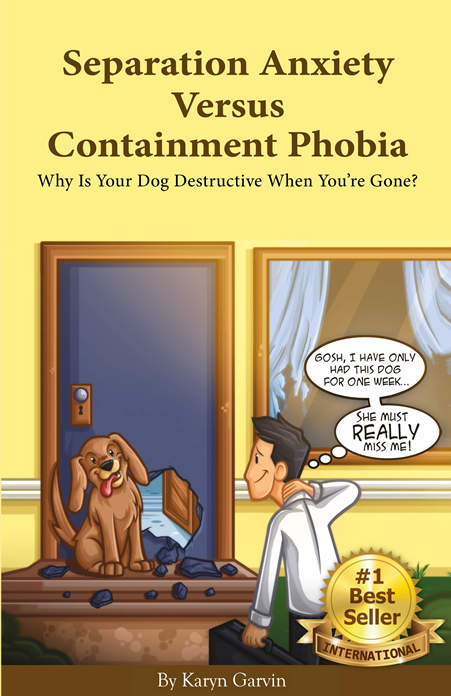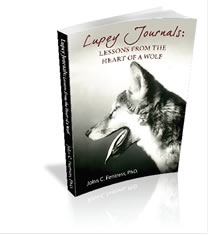
"Separation Anxiety Versus Containment Phobia"


John C. Fentress, PhD. author, lecturer, and scientist


John C. Fentress, PhD. author, lecturer, and scientist
John C. Fentress, PhD. John was the founding member of Wild Canid Survival and Research Center in St. Louis Missouri in 1972. The purpose of this Research Center was to give wolves a habitat. His experience also included working at the animal behavior lab at the Cambridge University of England as well as working with over 50 wolves at the Canadian Center for Wolf Research in Nova Scotia.
In essence John dedicated much of his life’s work, over 30 years, to studying the behavioral development, communication and personality traits of wolves. In his most recent book, to be released in 2015, John shares numerous stories of lessons he learned from Lupey, a wolf he raised from the time it was a young pup. John was only 24 years old when he first got Lupey at the age of 4 ½ weeks – he even had to bottle-feed him.
John’s firsthand experience with Containment Phobia confirms that pure wolves have an innate phobic reaction to being trapped, or what they consider to be trapped. His own wolf Lupey once dug through the plaster of a bedroom wall to get out of the bedroom. John’s memoir of Lupey includes these stories of Lupey’s need to escape confinement.
John C. Fentress
Containment Phobia
Containment Phobia is a term which is defined as an extreme fear of being trapped. The ethological study of wolf behavior will confirm that the wolf will go to great extremes to escape any environment in which it feels trapped. This self-preservation response or Containment Phobic response is imbedded in the wolf’s DNA.
In her book, “Separation Anxiety Versus Containment Phobia: Why Is Your Dog Destructive When You’re gone?” Karyn establishes a formal theory that dogs, which are descendants of the wolf, are prone to experience the same level of Containment Phobia as their ancestors. For certain dogs, it is a part of their Divine nature as well.